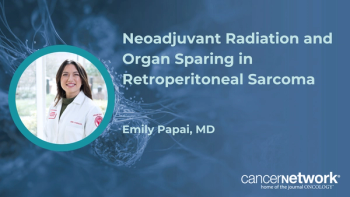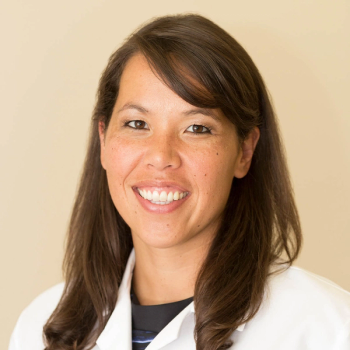
Patients Aged 70 or Older With Esophageal or EGJ Cancers Should Be Evaluated for Optimal Curative Therapy
Data from the Journal of the American College of Surgeons suggest patients 70 years or older with esophageal or esophagogastric junction cancers should be evaluated for optimal curative therapy.
Older patients with locoregional esophageal or esophagogastric junction (EGJ) cancer need to be evaluated for optimal curative therapy, including neoadjuvant chemoradiotherapy and surgical resection, according to data published in the Journal of the American College of Surgeons.
Although the data found that preoperative risk scoring and postoperative atrial arrythmias were higher for patients aged 70 years or older versus younger patients, both short- and long-term outcomes were noninferior for the group of older patients.
“We found that surgical resection after [neoadjuvant chemoradiotherapy] can be performed safely in well-selected older patients with esophageal and EGJ cancer with short- and long-term outcomes that are comparable with those obtained in patients younger than 70 years,” wrote the investigators. “In addition, use rates for triple modality therapy including surgical resection are increasing over time at our institution.”
Over the span of 16 years—between January 1, 2004 and December 31, 2019—405 consecutive patients with esophageal or EGJ cancer underwent primary treatment at a single institution. The team collected data on demographic information, tumor stage, preoperative Charlson Comorbidity Index scores, treatment variables, and short- and long-term outcomes, with patients 70 years or older classified in the “older” group and those under the age of 70 years classified in the “younger” group.
Of that initial cohort of patients, 188 patients in the younger group (median age, 59 years) and 94 patients in the older group (median age, 74 years) received neoadjuvant chemoradiotherapy and surgical resection for disease stage 2 or higher.
When investigating preoperative characteristics, patients in the older group had significantly worse Charlson Comorbidity Index scores than patients in the younger group. More, the older group saw postoperative atrial fibrillation and urinary retention develop more frequently than in the younger cohort.
“Our data show that, in this age group, significantly fewer patients underwent optimal triple modality therapy including surgical resection,” wrote the investigators. “This included a significantly lower percentage of surgically resected patients 70 years or older who underwent neoadjuvant chemoradiation therapy and a significantly lower percentage of all patients 70 years or older with stage II and III cancer who underwent neoadjuvant chemoradiation and surgical resection, compared with the age group 70 years or younger.”
Regardless of the worse prognoses for patients in the older cohort, complication severity scores of 3 or higher via postoperative Clavien-Dindo classification, perioperative mortality rates, and lengths of stay were all similar between the 2 groups.
Finally, long-term, age-adjusted survival rates examined at 5 years were 44.8% in the older group and 39% for the younger group of patients.
The research team noted that all patients in the older group were treated with optimal triple modality therapy. More, patients with “unstable or severe chronic heart disease, moderate to severe chronic liver disease, and severe chronic pulmonary disease” were excluded from consideration for undergoing surgical resection.
“In view of increasing lifespans in the US and worldwide, and the increasing incidence rate of esophageal and esophagogastric cancer, it can be expected that increasing numbers of elderly patients will present with stage II and III esophageal and EGJ cancer in the future,” wrote the investigators. “The development of comprehensive prehabilitation programs might expand the proportion of elderly patients who can undergo optimal triple modality therapy, and this is a current focus of our group for these patients.”
Reference:
Sawyer WP, Luo X, Welch AM, et al. 15-Year Experience with Multimodality Therapy Including Esophagectomy for Elderly Patients with Locoregional Esophageal Cancer. J Am Coll Surg. Published online February 4, 2021. doi:10.1016/j.jamcollsurg.2020.11.027
Newsletter
Stay up to date on recent advances in the multidisciplinary approach to cancer.





































